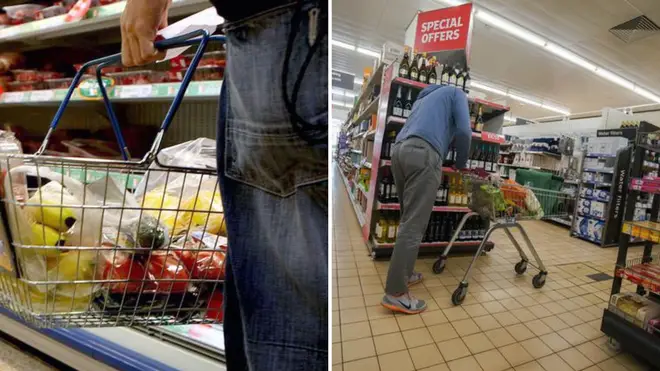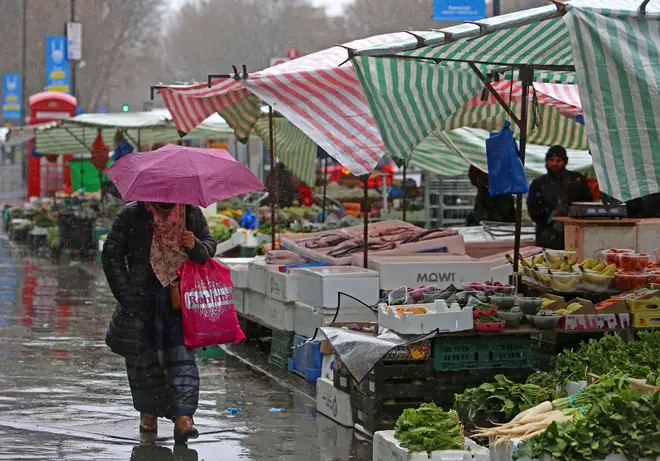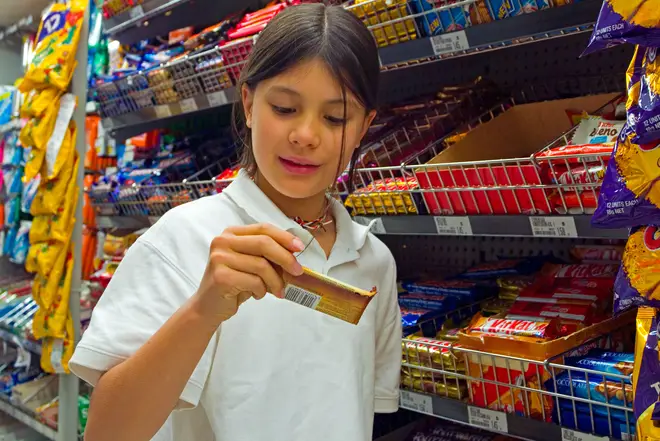
Clive Bull 1am - 4am
30 May 2023, 07:09 | Updated: 30 May 2023, 07:12

The rate of supermarket price rises reached a new high in the year to May, although food price increases slowed slightly, new figures suggest.
Overall inflation in shops rose from 8.8% to 9% between April and May, according to a survey by the British Retail Consortium (BRC) and Nielsen.
This was largely driven by price increases in commodities like chocolate and coffee.
But inflation across all food items fell to 15.4% in the year to May, down from 15.7% in April.
That means that on average a person who spent around £20 in a food shop a year ago would now be paying a little over £23 for the same items.
Although May's figure is a little lower than the food inflation seen in April, it is still the second fastest annual increase the BRC has ever measured, it said.
Listen and subscribe to Unprecedented: Inside Downing Street on Global Player

The group added that the price of fresh food increased by 17.2% in the year to May, down from 17.8% in April.
However, ambient food inflation - that is to say shelf-stable items that can be stored at room temperature - rose from 12.9% in April to 13.1% in May.
It comes amid reports Rishi Sunak will ask supermarket bosses to limit prices on certain key items amid "worryingly high" food inflation.
But retail chiefs claimed that this would not work and could even lead to food shortages.
"While overall shop price inflation rose slightly in May, households will welcome food inflation beginning to fall," said BRC chief executive Helen Dickinson.
"The slow in inflation was largely driven by lower energy and commodity costs starting to filter through to lower prices of some staples including butter, milk, fruit and fish.

"Conversely, the price of chocolate and coffee rose off the back of the ongoing high global costs for these commodities. While non-food inflation rose, consumers are benefiting from heavy discounts in footwear as well as books and home entertainment.
"Fierce competition between supermarkets has helped keep British food among the cheapest of the large European economies.
"While there is reason to believe that food inflation might be peaking, it is vital that Government does not hamper this early progress by piling more costs onto retailers and forcing up the cost of goods even further.
"The biggest risk comes from policies such as the incoming border checks and reforms to packaging recycling fees."
Mike Watkins, head of retailer and business insight at NielsenIQ, said: "To help mitigate the impact of inflation, shoppers are saving money by looking for seasonal promotions on the high street and taking advantage of the price reductions offered by supermarket loyalty schemes.
"Food retailing in particular is competitive, so hopefully the recent price cuts in fresh foods is a sign that inflation has now peaked, albeit ambient inflation may take a little while longer to slow."